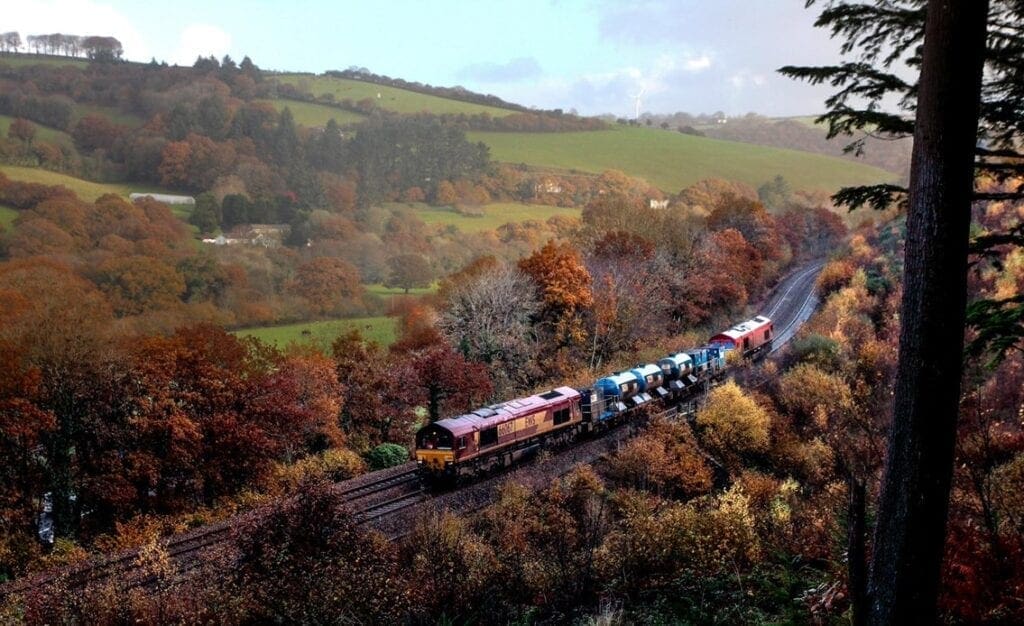
Network Rail ready to tackle ‘leaves on the line’ and keep passengers moving safely and reliably this autumn with 61 leaf-busting trains and 80 leaf-busting teams.
Regarded as the railway’s equivalent of black ice on the roads, leaves on the line can create issues when they stick to damp rails and are compressed by moving trains into a thin, black layer which can affect train braking and acceleration.
The build up of leaf mulch can also make it harder for signallers to detect a train’s location, causing delays to services for passengers.
From the history of steam through to 21st century rail transport news, we have titles that cater for all rail enthusiasts. Covering diesels, modelling, steam and modern railways, check out our range of magazines and fantastic subscription offers.
That is why Network Rail and train operators are working flat out this autumn – for example by preparing specialist equipment, undertaking specialist driver training and ensuring teams are on standby 24/7 – to help keep services running safely and smoothly.
Nick King, Network Rail’s network services director, said: “Our preparation for this year’s autumnal weather has been as comprehensive as ever, and our highly skilled frontline teams and leaf-busting trains will be working non-stop to help keep the tracks clear and services running on time.
“We have worked tirelessly to make sure passengers can travel by rail safely over recent months – for example through enhanced cleaning regimes at stations and introducing hand sanitiser points at our stations. Passengers should continue to follow Government guidance on the use of public transport by wearing a face covering, maintaining social distancing and travelling at quieter times where possible.”
Robert Nisbet, Director of Nations and Regions for the Rail Delivery Group, which represents the rail industry, said: “We are committed to making sure that improved performance continues as the seasons change, helping people to travel with confidence.
“Train operators and Network Rail are working together to keep people moving by running leaf-clearing trains, putting response teams on standby and investing in better technology on board trains to reduce the impact of autumnal weather.”
Preparation programme
Network Rail’s autumn preparation programme includes a number of measures:
- A total of 61 leaf-busting trains – 29 Railhead Treatment Trains (RHTT) and 32 Multi-Purpose Vehicles (MPV) – which move around the network, cleaning the top of the rail by spraying it with a water jet at very high pressure (1500 bar) to blast away leaf mulch
- These trains also apply a gel, containing a mix of sand and steel grains, to help the train wheels run along the tracks as they ordinarily would
- We have 80 two-person leaf-busting teams available 24/7 at key locations to scrub the top of the rails by hand with a sand-based treatment
- Management and replacement of lineside vegetation with species less likely to shed leaves on to the tracks
- Between 1 October and 13 December, Network Rail receives adhesion forecasts twice a day from a specialist weather forecaster, highlighting locations that require action. This allows resources to be planned more effectively
- As an industry, we work together to run a safe and reliable service. In areas with heavy leaf-fall, some operators publish special autumn timetables with revised journey timings to allow train drivers to drive more cautiously than usual.
Some RHTTs and MPVs are already deployed on the network, having begun at the start of this week, with the rest set to follow from today. This fleet of autumn treatment trains treated 895,217 miles of track in 2019 – the equivalent of travelling to the moon three and a half times.

